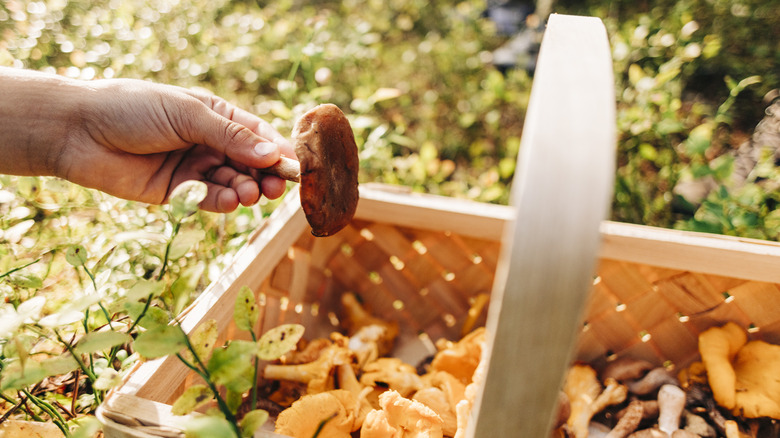Rick Steves' Philosophy Of Becoming A 'Cultural Chameleon,' Explained By His Protégé
"When in Rome, do as the Romans." We've all heard this phrase, right? When visiting a different country, you respect local customs and act in accordance with their ways — easy. But how do you make the most of your time there, begin to understand the local ways, and allow yourself to see through the eyes of other people? Hint: You don't take an expensive flight to another continent only to hunt down the nearest McDonald's. Rather, you do as Rick Steves' protégé, Cameron Hewitt, explains on the renowned travel expert's website and become a "cultural chameleon."
Being one, as Hewitt explains, doesn't mean imitating the mannerisms and speech of locals, like a tourist trying not to get spotted as one. When in Rome, you do not need to over-gesticulate with your hands or follow the most crucial coffee etiquette secrets by refusing to have a cappuccino after 11:00 a.m. (although you'll still get side-eye for the latter). Rather, it means participating in things that locals get excited about. Eat their food, drink their refreshments, and enjoy their activities.
Let's say you follow Rick Steves' advice and pay a visit to Bulgaria, an overlooked European country that's charming and affordable. On your trip, folks in the small mountain village of Melnik are heading into the forest to forage for mushrooms. Do you join or say, "Um, no thanks, I'll stay in my A/C-controlled hotel room." If you do the latter, you're seriously missing the point. And if you do the former, you're a bona fide cultural chameleon. Pay attention to what locals care about and join the fun.
Eat local food, drink local drinks, and do local activities
It would be overly simplistic to reduce Hewitt's advice to forcing yourself to eat or drink things that you wouldn't normally. But cuisine makes for convenient examples and is part of the cultural chameleon ethos. The travel writer mentions hard apple cider being big in Norway, which is true, especially in the Hardanger region near Bergen. So if you're on a vacation in Norway and see the beverage on the menu, would you stick to the same old beer you get back at home? It'd be a supreme waste not to see what all the fuss is about.
This also applies to food. Even if a dish comes across as pungent or off-putting, as many Westerners feel about natto (fermented soy beans) in Japan, give it a try, say that you did it, and let that be that. However, if you're worried that the dish will make you sick, it's ok to be up-front about how you feel, so long as you're polite. And if taking part in local food would violate some personal precept, like a vegetarian eating meat, then of course, give said food a genteel pass.
On the activity front, Hewitt mentions beekeeping in Slovenia, a country whose capital, Ljubljana, Rick Steves calls a relatively undiscovered delight. Its folk art involves beautifully painted beehives in countryside meadows, where the insects gather to make honey. Even if you think bees are scary, why not at least view such artwork to try to understand the country better? Such is the life of a true cultural chameleon.

